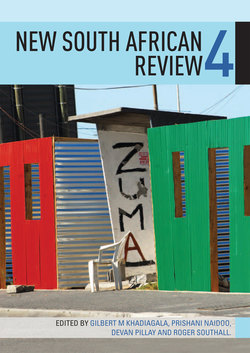Читать книгу New South African Review 4 - Devan Pillay - Страница 4
На сайте Литреса книга снята с продажи.
Preface
ОглавлениеA Fragile Democracy – Twenty Years On, the fourth New South African Review, is one of doubtless numerous attempts to characterise the state of South Africa some two decades after those magnificent days in late April 1994 when South Africans of all colours voted for the first time in a democratic election. As we write this, we are approaching the country’s fourth such election, a significant indicator of the overall success of our democratic transition – for although there may prove to be wrinkles there is every expectation that the forthcoming contest will again be ‘free and fair’. Nonetheless, there are likely to be changes in the electoral landscape, there being significant prospect at time of writing that the ruling African National Congress’s (ANC’s) proportion of the vote will fall below 60 per cent, the level of electoral dominance it has consistently achieved hitherto. While the ANC can claim many triumphs, and can convincingly claim to have transformed South Africa for the better (materially and spiritually), there is nonetheless widespread discontent abroad. The ANC itself displays many divisions. The Tripartite Alliance (which links it to the South African Communist Party (SACP) and the Congress of South African Trade Unions (Cosatu)), is creaking; it is threatened by new opposition parties which appeal to disaffection – especially among the poor and those who feel excluded from the benefits of democracy – and even the established opposition party, the Democratic Alliance (DA) today seeks to cloak itself in the mantle of Mandela. Even while the ANC boasts about steady growth, more jobs, improved service delivery and better standards of living for the majority, critics point out that the economy is stagnating, unemployment remains stubbornly high, corruption flourishes, popular protest abounds, and government and many public services (notably the intelligence agencies and the police) have earned an alarming reputation for unaccountability. So we could go on – but we won’t, as we would rather encourage our readers to engage with the wide-ranging set of original essays provided by our authors. All we will say here is that there can be no one narrative of the achievements, disappointments and – yes – outright disasters of the last twenty years, but we are confident that, as ever, the New South African Review will add constructively and critically to the debate about where South Africa has come from and in what direction it is going.
The New South African Review remains centred in the Sociology Department at the University of the Witwatersrand, although this year the editorial team has been joined by Professor Gilbert M Khadiagala of the University’s Department of International Relations. Apart from being indebted to our many contributors, we would like to record our thanks to both the Dean of Humanities, Professor Ruksana Osman, and the Head of the School of Social Sciences, Professor Shahid Vawda, for their encouragement and provision of financial support. Ingrid Chunilall and Laura Bloem, administrators within the Department of Sociology, undertook numerous unglamorous and demanding tasks associated with the organisation of the volume with their usual good humour and efficiency. Last but not least, we owe a huge debt to the team at Wits University Press, notably Veronica Klipp, Roshan Cader and our technical editor Monica Seeber, who not only remained enthusiastic about the project but evinced enormous patience when we as editors failed to toe the line and meet deadlines.
Gilbert M Khadiagala, Prishani Naidoo, Devan Pillay and Roger Southall.
January 2014
